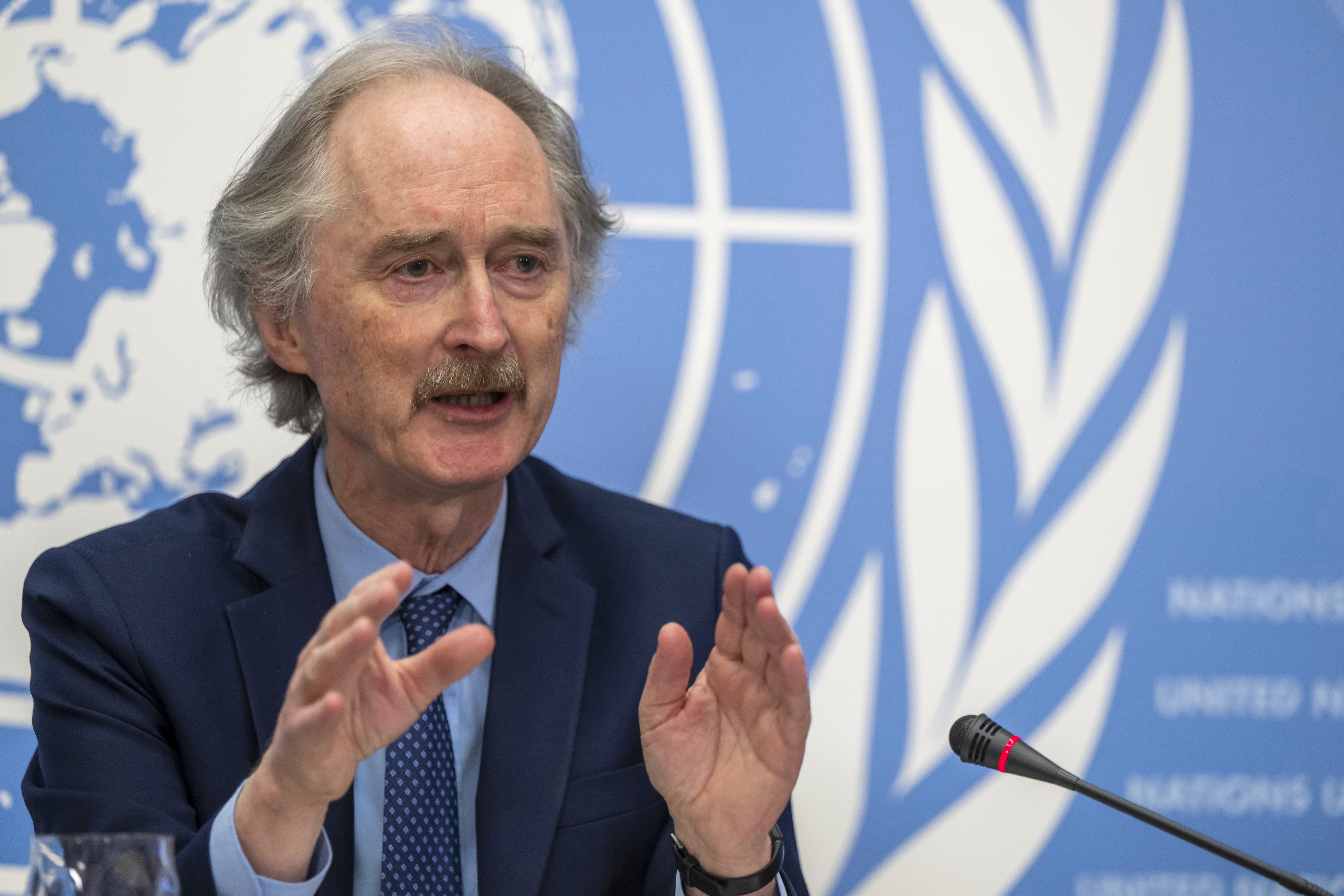UN envoy calls for renewed Syrian political talks post-quake
A top United Nations official has called for renewed attempts to reach a political solution to the country’s nearly 12-year-old civil conflict in the wake of last month’s devastating earthquake

Your support helps us to tell the story
From reproductive rights to climate change to Big Tech, The Independent is on the ground when the story is developing. Whether it's investigating the financials of Elon Musk's pro-Trump PAC or producing our latest documentary, 'The A Word', which shines a light on the American women fighting for reproductive rights, we know how important it is to parse out the facts from the messaging.
At such a critical moment in US history, we need reporters on the ground. Your donation allows us to keep sending journalists to speak to both sides of the story.
The Independent is trusted by Americans across the entire political spectrum. And unlike many other quality news outlets, we choose not to lock Americans out of our reporting and analysis with paywalls. We believe quality journalism should be available to everyone, paid for by those who can afford it.
Your support makes all the difference.A top United Nations official called Wednesday for renewed attempts to reach a political solution to the country's nearly 12-year-old civil conflict in the wake of last month's devastating earthquake.
Geir Pedersen, the U.N. special envoy for Syria, told reporters that the deadly 7.8 magnitude quake that struck Turkey and Syria last month had served as a "wakeup call to the world that the Syrian tragedy is far from over.”
“We need to take this attention and see if it can help us to unlock progress” in the political process, he said.
The earthquake, which killed more than 50,000 people, including about 6,000 in Syria, has already prompted some political concessions both from the government in Damascus and its opponents.
The Syrian government agreed to open additional border crossings for international aid to cross from Turkey into rebel-held northwest Syria, while the United States and European countries relaxed some of their sanctions on Damascus.
“We need the same logic that was applied on the humanitarian front to be applied at the political level,” Pedersen said at a news conference in Geneva.
Pedersen called for a “Syrian-led and owned political process facilitated by the United Nations” including a return to meetings of a committee formed to draft a new constitution for Syria, with representatives of both the government and opposition.
At a Russia-hosted Syrian peace conference in January 2018, an agreement was reached to form a 150-member committee to draft a new constitution. It took until September 2019 for the committee to be formed, and after eight rounds of talks little progress was achieved.
In the wake of Russia's war in Ukraine and increased tensions between Moscow and European countries, the talks halted altogether, with the Syrian government — which received heavy support from Russia in the civil war — refusing to come to meetings in Geneva.
Reconstruction of areas damaged in the civil war has largely been on hold in the absence of a political solution. The country's infrastructure is now further damaged by the earthquake. The World Bank estimated last week that Syria sustained an estimated $5.1 billion in damages from the quake.
Asked about the prospects for post-earthquake reconstruction, Pedersen noted that the quake response is still focused on immediate humanitarian needs, but acknowledged that in later stages there will be a “need to address some of the issues that are more linked to the political side of the of the process.”
"Hopefully we will be able to facilitate that,” he said.